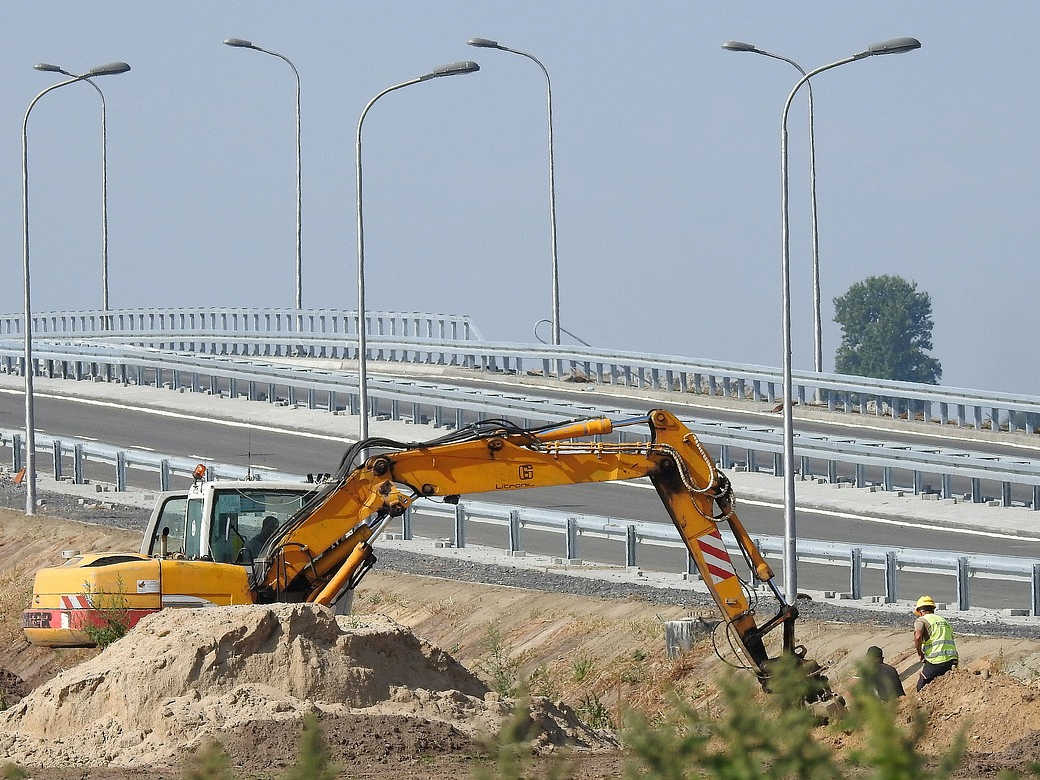3 smart city engineering jobs with great growth potential
Written by CD, updated Jun 04 2019 in accordance with our editorial policy.
Smart cities are a step towards greater automation in our world. Automation has become synonymous with job losses. After years watching the changes in the industry, I’ve put together a list of what I think will be the growth opportunities for engineering jobs thanks to smart city development. Three smart city engineering jobs with great growth potential are railway engineers, roads workers, and town planners.
1. Railway Engineer
Railways form the foundation on which a smart city is built. Gone are the days of shovelling coal in a hot cabin, railway engineers are now responsible for the successful operation of the entire railway. They keep the trains running, make sure they stay on the tracks, and ensure they’re prevented from crashing into each other.
Typical smart cities depend on railways for transport. As railways grow, so to do the jobs dedicated to maintaining them. This is why I think railway engineering is a great career to be in if you want to work with smart city infrastructure.
What are the best railway engineering jobs
The best railway engineering jobs for working with smart city infrastructure are in maintenance.
Railway maintenance engineers keep the trains running by…
- Preventing trains from breaking down by lubricating parts and replacing broken parts such as wheels;
- Correcting faults that occur on a train, mechanical or electrical - motors to air conditioners and everything in between;
- Helping to replace the trains as they come of age and degrade to a point where they’re no longer suitable to run.
Similar to roads, railway maintenance engineers need to fix the rail and make sure the trains stay on the track. Check the drainage, check for damage to the surface, and take responsibility for the repairs. This is a great option if you have an interest in civil engineering.
Safety critical electronics and computer systems ensure trains don’t crash in to each other. Interested in electrical work, or already have an electrician’s license? Train control systems are smart infrastructure, they provide data that can be fed in to the rest of the smart city model. Maintaining train control systems is a great way to get involved in smart city infrastructure.
If you want an engineering job working with smart city infrastructure, railway engineering is perfect for electricians, mechanical engineers, and civil engineers.
How can I get started?
Most cities have a single rail operator. Go and see what jobs they have available. A good operator will ensure the right number of staff at every level of maintenance. Talk to them about how to get started, meet the people, and see if it’s the right career for you.
2. Roads

If you love working with big powerful machines, you’ll love working with roads.
Roads are not disappearing any time soon either, they form the backbone of any city. I live in a city where few people drive, yet the road network is still vitally important for transport. People take the bus, shops get their deliveries, and trucks carry manufactured goods from factory to port. Roads are another foundation of smart city infrastructure. What are the best jobs in roads
Smart cities are pushing right now for driverless cars, but no driverless car can replace the skills of a plant operator. Break up tarmac, dig up roads, pour concrete, lift heavy things. You are in control of a large powerful machine. If you have the right licenses already, operating plant for road maintenance is easy to get in to: Find the contractors responsible for your area, and apply for the job.
If you have a civil engineering background, head to the local municipality to get involved with their roads maintenance programme. I used to work with the guys responsible for planning bridge maintenance across an entire state! The amazing countryside I saw on this job, travelling around the countryside looking at bridges, was incredible. The job is even more important in a smart city. Smart city roads might be kitted out with a super computer worth of sensors, but they still need people to inspect and plan roads maintenance.
Traffic control, even in the smartest of cities, will always be necessary. Today, traffic control involves setting up signs or portable lights, and making sure drivers obey them. In the smart city of tomorrow, with autonomous cars, traffic controllers will still be needed. Traffic controllers will ensure the systems are running that prevent driverless cars entering the work site. A driverless car in a work site could damage something, or even kill a person.
How do I know traffic controllers will still be in demand with autonomous cars? I work with autonomous trains; trains that drive themselves in service and to and from the depot. People die when automated trains don’t know to avoid a work site. When driverless cars start running on our roads, traffic controllers will have an even more important job.
3. Town Planning

Smart cities need to plan with their infrastructure in mind. My friend the town planner makes sure the infrastructure works with the liveability of the city and the useability of surrounding buildings. Engineers make great town planners, but they still need the balance of architecture and landscape design that affect how a city is experienced.
Those involved in town planning are the key to transforming current cities to smart cities. A smart city will continue to use
Smart cities are about more than infrastructure; smart cities also focus on the culture of the city. Town planners are a bridge between the smart city infrastructure and its cultural place in the heart of the city. What makes a great town planner?
Having a vision for the city, what is your idea on how the city will look and feel. Understand the community, what they want and how they feel about their community. This is a job that also requires patience; most of the time you’re dealing with many stakeholders and turnaround can be slow. How to get started?
This one requires a university degree: You can do it straight after high school, or you can do it after working as a civil engineer or landscape designer for a few years. Check out your local university for courses in town planning or urban design, and speak to local municipalities about how they use their planners.
As cities develop and become smart cities, town planners will be in ever growing demand.
What other smart city infrastructure needs maintenance?
I talked a lot about maintenance. Maintenance is how you prevent faults from occurring, correct them when they do, and replace parts when they’re no longer viable to correct/repair. These three components of infrastructure maintenance can be applied across any piece of infrastructure.
Other smart city infrastructure that needs maintaining includes:
- Pipes. No city functions without plumbing, from ancient Rome to modern Singapore.
- Tunnels. Cracks need patching before a leak develops.
- Electricity cables. Without electricity, the whole concept of a smart city falls apart.
Maintenance is a job that is difficult to automate. This makes it the perfect career if you’re looking for a safe and reliable job.
You can get started on a career in railway maintenance, roads, or town planning today